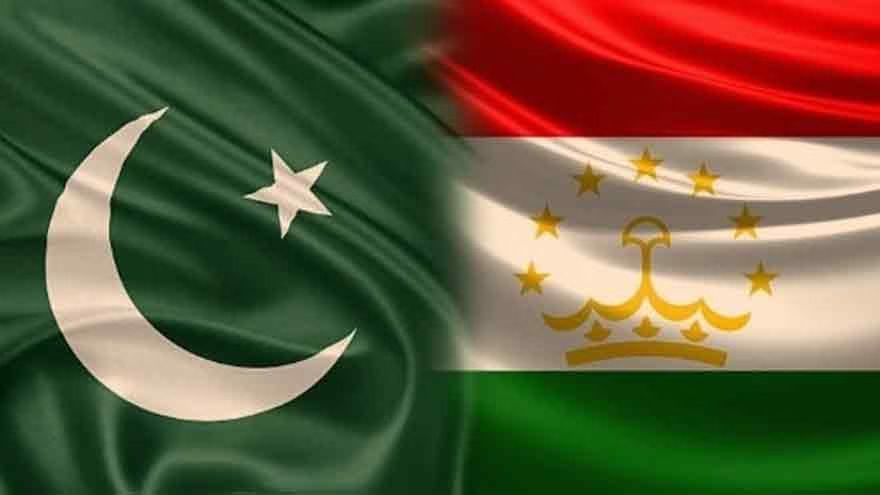The Pakistan and Tajikistan Bilateral Political Consultations (BPC) held in Dushanbe marked another milestone in deepening the relationship between the two countries. The sixth session of BPC focused on enhancing trade, regional integration, and energy security while reaffirming mutual cooperation in defence, education, and diplomacy. Both nations emphasized the importance of boosting ties in textiles, agriculture, food, pharmaceuticals, and logistics, showcasing the broad spectrum of opportunities available for collaboration.
Expanding Trade Through Bilateral Political Consultations
The central focus of the Pakistan and Tajikistan Bilateral Political Consultations was trade expansion. Pakistan, with its strong textile and agricultural base, and Tajikistan, with growing demand for diversified imports, are positioned to complement each other’s economic strengths. The delegations, led by Additional Foreign Secretary (West Asia and Afghanistan) Syed Ali Asad Gillani from Pakistan and Deputy Foreign Minister Farrukh Sharifzoda from Tajikistan, highlighted the need to enhance market access and ease logistics.
Discussions also touched upon developing stronger supply chain mechanisms, particularly in food and pharmaceutical sectors, which are becoming critical in the post-pandemic global economy.
Energy and Connectivity Take Center Stage
A major theme of the Pakistan and Tajikistan Bilateral Political Consultations was regional energy cooperation. Both sides reaffirmed their commitment to the early operationalization of the CASA-1000 project. This landmark initiative aims to transmit surplus hydropower from Tajikistan and Kyrgyzstan to Pakistan, addressing energy shortages while fostering regional integration.
Connectivity was another vital area of discussion. The delegations underlined the need for effective use of regional transport corridors, which will enhance trade not only between Pakistan and Tajikistan but also with other Central Asian states. Improved transport infrastructure and logistics can reduce trade costs and strengthen cross-border economic ties.
Defence and Security Cooperation
The Pakistan and Tajikistan Bilateral Political Consultations also reviewed defence and security collaboration. Both countries acknowledged the importance of joint counter-terrorism efforts, military training programs, and regular exchange of visits between security officials. The discussions highlighted shared security concerns in the region, particularly in the context of Afghanistan, and emphasized the role of intelligence sharing and coordinated action.
Political, Cultural, and Educational Exchanges
Beyond trade and security, the consultations reflected a holistic approach to bilateral relations. Political and parliamentary ties were discussed as key pillars for long-term stability. The two nations also emphasized cultural and educational exchanges, with a focus on student scholarships, training programs, and academic partnerships. Strengthening people-to-people linkages through cultural diplomacy was identified as a way to promote greater understanding and trust.
Regional and International Issues
During the Pakistan and Tajikistan Bilateral Political Consultations, the delegations exchanged views on pressing regional and international matters. Pakistan raised the situation in Indian Illegally Occupied Jammu and Kashmir, emphasizing the importance of diplomacy and adherence to UN Charter principles in conflict resolution. Both sides reaffirmed their commitment to peaceful dialogue and collective action through multilateral platforms.
Field Visits and Economic Insights
As part of the session, Pakistan’s Additional Foreign Secretary visited the Panj Free Economic Zone (FEZ) and the Commercial Customs Facility at Panji Payon. These visits provided valuable insights into Tajikistan’s growing role as a regional trade hub. Meetings with Tajik officials, including the First Deputy Minister of Transport and Deputy Minister of Economic Development and Trade, highlighted opportunities for Pakistani businesses to expand into Central Asian markets.
Looking Ahead: Next Bilateral Political Consultations in Islamabad
The sixth session of the Pakistan and Tajikistan Bilateral Political Consultations concluded on a positive note. Both sides agreed to convene the seventh session in Islamabad in 2026, underscoring their commitment to institutionalizing regular dialogue. This continuity ensures that momentum in trade, energy, defence, and cultural cooperation will be sustained.
The latest Pakistan and Tajikistan Bilateral Political Consultations reflect the growing partnership between Islamabad and Dushanbe. From trade and energy to defence and diplomacy, the two countries are aligning on multiple fronts to strengthen bilateral and regional cooperation. With projects like CASA-1000 and enhanced transport corridors, Pakistan and Tajikistan are poised to play a significant role in South and Central Asia’s connectivity and economic growth. As the next round of consultations moves to Islamabad, the relationship between the two nations looks set to deepen further, creating new opportunities for shared progress.



